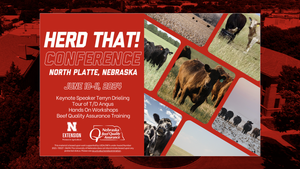Kardashians peddle Beyond Burgers; Consumers aren’t swayed
Celebrities continue to endorse fake meat, but it turns out, the general public is demanding the comfort and nourishment of real beef during the pandemic.
September 27, 2021

It seems like celebrity endorsements are all the rage these days. Influencers with millions of followers on social media offer reviews, testimonials, and even discount codes for their favorite goods and services.
And if you’re good at it, you can make millions doing it.
Take the Kardashians, as an example. Every square in their Instagram feed is to subtly or not-so-subtly influence the masses. From makeup, to shape ware, to health foods, and even vaccines, they’ve constantly got a new product or company they want their followers to buy into.
Over the weekend, I noticed that on Kim Kardashian’s Instagram feed, she attended a health spa weekend complete with ice baths, sound therapy, healing massages, and detoxification practices.
It was all very “on brand” for the wellness event, until they got to lunch.
Any guesses on what the Kardashian crew munched on? On silver platters, their butlers served them mini Beyond Burger sliders.
With an eyebrow raised, I thought to myself — something doesn’t quite fit here. I would contend that Beyond Burgers fit in the same categories as Pop Tarts and Doritos, but hey, I’m no dietitian.
But if I were a betting gal, I would venture to guess there was some cash exchanged for the endorsement of the patty. I would also venture to guess they didn’t eat the fake patties, but that’s just me speculating.
Now, I don’t really care what celebrities eat, but there’s no negating the fact that they can sway the masses and push false narratives that are extremely damaging to the beef we are so proud to produce. For years, they have teamed up with activist groups to do exactly that — turn the public sentiment away from animal fats and proteins.
However, the real question is — are consumers buying what their selling?
Turns out, the general public does not want fake meat at all. Shocker, I know.
According to Bloomberg Businessweek, “For some of the fast-food restaurants that peddled plant-based versions of their menus to appeal to meat-conscious consumers, the novelty is already wearing off. It could spell trouble for the makers of the products, who’ve hyped the partnerships as a major step to mainstream popularity.
“The biggest restaurant chains are backing off—or at least slowing down—faux-meat plans after the Covid‑19 pandemic and lockdowns upended dining and eating. Instead of trying new things, Americans have been eating at home or seeking familiar, comforting foods when they do venture out. Orders of plant-based burgers and sandwiches at fast-food restaurants were unchanged for the year ended in June, while beef burger orders climbed 12% over the same period, according to market researcher NPD Group Inc.
“Sales of meat substitutes overall at U.S. restaurants fell more than 23% last year, according to Euromonitor International data. Volumes have rebounded this year but are expected to be only 4.4% above the 2019 level.”
Proponents of meatless diets would argue that consumers should “follow the science” and consume plant-based foods only. However, we know that truth and science is on the side of meat.
In a new article published on The Guardian, a Swedish study debunks the popular anti-meat myths and proclaims that steak, salt, and dairy are actually good for us!
Here is an excerpt: “Government-led lack of trust in the healthfulness of whole foods in their natural forms encouraged us to buy foods that have been physically and chemically modified, such as salt-reduced cheese and skimmed milk, supposedly to make them healthier for us.
“The grave effects of this relatively recent departure from time-honored eating habits comes as no surprise to those of us who never swallowed government ‘healthy eating’ advice in the first place, largely on evolutionary grounds.
“Is mother nature a psychopath? Why would she design foods to shorten the lifespan of the human race?
“And time is vindicating. This bankrupt postwar nutrition paradigm is being knocked for six, time and again, by up-to-date, high quality research evidence that reasserts how healthy traditional ingredients and eating habits are.
“Although meat has been a central component of ancestral diets for millions of years, some nutrition authorities, often with close connections to animal rights activists or other forms of ideological vegetarianism, promote the view that it is an unhealthy food.
“The health case against meat is predicated on cherry-picked evidence from low-quality, unreliable, observational studies that fail to draw a distinction between meat in its unprocessed form and multi-ingredient, chemically altered, ultra-processed meat products, such as hotdogs.”
Vindication feels good, doesn’t it? And as I’ve said time and time again this past year:
Be a rebel. Ignore junk propaganda and fake influencer culture. Stand in the truth. Eat steak. And live free!
The opinions of Amanda Radke are not necessarily those of beefmagazine.com or Farm Progress.
About the Author(s)
You May Also Like




.png?width=300&auto=webp&quality=80&disable=upscale)
